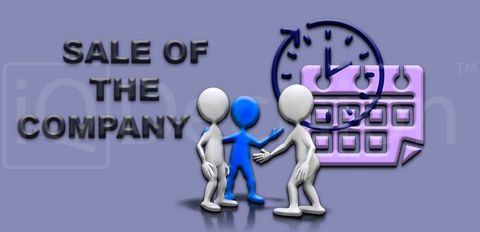The decision of business owners as to whether or not to sell a business is a complex and problematic issue. This review will be useful for entrepreneurs who want to sell a company abroad and in home jurisdiction.
There are a number of business-related factors to consider and weigh before making the final decision to sell your company. First, try to answer the below questions:
- How has the business been performing over the past few years, and what are its short and long term prospects?
- What industry trends are affecting businesses at the present time, and what are their likely effects on future development?
- How long does the existing management team intend to run the business and what are the plans for succession?
- What is the state of the M&A market and how will it look in the coming years?
With a few notable exceptions, modern business is built to sell or otherwise gain liquidity through a public offering (IPO). Of course, there are some family-owned companies whose motto is to pass the company down from generation to generation but this happens less and less often. The reality is that the timing of the sale of a company is the biggest question a business owner decides throughout his or her career. However, careful consideration of the following factors can help shape a decision:
- Is there a good reason to sell? Under certain circumstances, the sale is dictated by external circumstances. Owner death, divorce, serious co-owner disagreements or the retirement of a key employee can lead to the need to sell the business. In such circumstances, the question is not whether to sell, but how to get the most out of the situation. Typically, this involves balancing the reason for the sale with the complexities of the selling process.
- Is the owner ready to leave the business? The owner should pause and have a private conversation. The connection with a business that has been built over time is very strong. Business ownership can be a big part of self-determination. A business can also give its owners a sense of independence, self-reliance and social acceptance. What will life be like without business? It is not uncommon for people who have sold their business to experience difficulties afterwards, leading to depression and a sense of remorse. It is important to discuss possible plans with family, friends, and trusted people. If the owner is not ready with the psychological reality of the difficulties of leaving the business, then the time for the sale has not yet come.
- What development cycle is the company in? Companies generally fall into one of four categories: start-up (launch), approval, growth, and maturity (experience). It is important to understand what stage the business is in, as this can significantly affect the value of the sale.
Startups are mostly showcase companies that are formed around a new idea or technology. They are in a fairly rudimentary stage and, as a rule, are completely dependent on the individual entrepreneur. In the absence of revolutionary technology, these types of companies rarely sell for significant value.
Entities in the approval phase are mainly focused on completing the initial product development and gaining some degree of market acceptance. They tend to rely on the original management team and experience various growth challenges. Their growth is usually limited by resources. Like startups, these types of companies are better suited for growth through investment rather than acquisition. However, there are some fast-growing companies, especially in the tech sector.
Companies in the high growth stage are generally the most attractive acquisition targets. They usually have high growth in product sales with good markups. Buyers of these companies often believe they can provide the necessary resources, sales channels, and management expertise to take the company to the next level.
Well-established companies are characterized by a focus on maintaining their market share. They can set attractive goals as they have established a favorable market position as well as a track record of earnings. However, some mature companies have stalled a little and lost their growth trajectory, which can lower costs.
Entrepreneurs wishing to sell a company overseas should also consider the general market conditions. Macroeconomic factors such as the overall national and international economy, the market prospects of a company and its products, and the legal and regulatory environment affect the overall business valuation. The industry the company is operating in should also be studied with particular attention with regard to the financial performance of the company in comparison with its competitors.
Business owners need reliable consultants to carry out the necessary analysis, make the right decision and sell the business on favorable terms.
IQ Decision UK specialists provide comprehensive advice and legal assistance in the process of the sale of a business. If you want to know how to sell a ready-made company, please reach out to us at the contacts below.


















